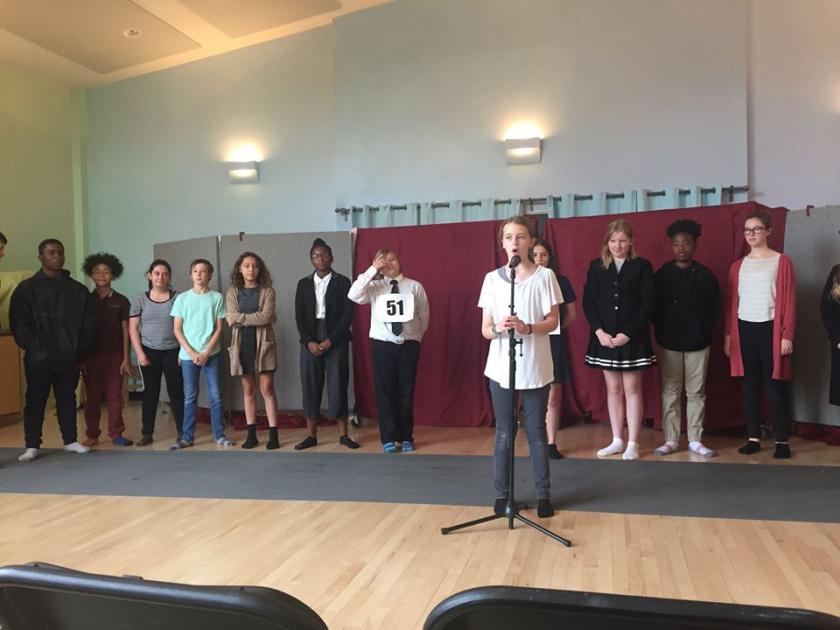Class plays teach life skills and invigorate subject lessons as an important part of Waldorf education.
For weeks the fifth grade has been practicing to perform their class play. Taylor, who will be performing as a narrator, is excited but nervous for her moment to shine.
“This is my first time being in play,” she said. “I’ve been working on my lines at home but I still need some practice on a few – but I’m really excited.”
The fifth grade is learning about Mesopotamia and Egypt. Through their studies they’ve come to the Epic of Gilgamesh and although they’ve read the story, now it’s time for them to act it out. The fifth grade performed the Epic of Gilgamesh in late November.
The play is part the arts integrated teaching style of Waldorf education which includes that every student at the Waldorf School of Baltimore will participate in at least two productions each year. Each class, beginning in first grade, works as a group to produce and perform their own play for our entire school community. The concept of creating a performance helps our students work on valuable life skills both on the individual level and as a team.
As a group of peers, the class must work together to put on the show from start to finish. It begins with each individual learning his or her often lengthy or complicated lines and cues and ends in a full-blown production complete with costumes and every student doing their part to showcase their work.
Individual students are able to focus on building a positive self-image while developing public speaking skills and confidence. In first grade the main focus of the play is to help the children learn self-control and discipline. By the time our students reach middle school, they’re confident and ready to take on more challenging productions and roles in the creation of the performance.
And the students transform as both a class and on individual levels as they get older – growing in their abilities from year to year. This fall, our seventh grade acted out an engaging interpretation of “Akeelah and the Bee”. Several students were able step into leadership roles to direct, costume and choreograph the play with little assistance from adults. Liam and Sonia worked together to direct their classmates in producing the performance. Another set of students were responsible for set design.
“Both Liam and I have professional acting experience, so we were able to something more than acting and to bring those experiences and skills to our classmates,” said Sonia. “The best part to me was being able to see it all come together because we were nervous but it ended up being great.”
While learning applicable life skills is critically important, class plays also reinforce lessons that are learned in the classroom.
“Being part of a production brings the subject matter to life for the students,” said Cecilia Liss, Academic Director. “Being able to act, perform and become one of the characters allows our students to feel a lesson rather than just read through the information.”
Each play is specifically linked to the curriculum and gives each student a new perspective on understanding and absorbing the lesson. The practice of becoming a character from history or literature also allows students to develop feelings about their subject matter. Transforming into a character can help a student understand the emotions that particular character is feeling including empathy, anger, tolerance and how choices impact other characters and people.
The middle school also sets the example for our youngest group of students in our Children’s Garden. The nursery, Pre-K and Kindergarten-aged students are sometimes able to participate in the class productions as audience members. They watch, listen and absorb the theatrics. Later, they perform their own plays and begin to prepare to take the stage as first graders in their very near futures.
To learn more about our curriculum visit our academics pages.

